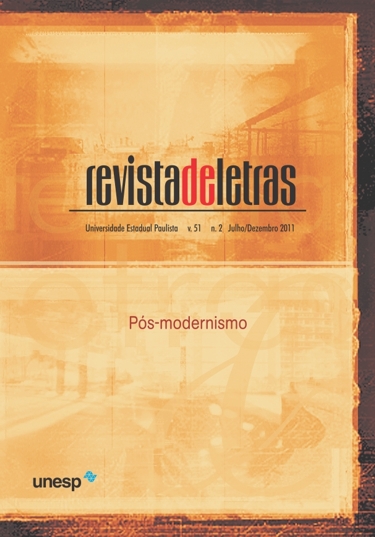Nonexistent cities, invisible knights: issues of postmodernity in Italo Calvino
Keywords:
Content, Form, Existentialism, Postmodernity, Italo Calvino,Abstract
The History of Literature is not, nor should it be, detached from the History of Humankind and its social organizations. Literary concepts such as Romanticism, Realism, Modernity or Postmodernity are intimately linked to bigger cultural productions and to the trajectory of people in society. Under these assumptions, all literary analysis, however close it may aim to be to the text itself, doesn’t keep from paying tribute, in a wide range of ways, to the historic-social context in which work and observer are inserted. All artistic work and the contingent studies about it or from it are, ultimately, historical productions. Guided by this vision and informed by the theoretical works of Z. Bauman, D. Harvey, Linda Hutcheon and Umberto Eco, the present article aims at making a literary analysis of the narratives “The invisible cities” and “The nonexistent knight” by Italo Calvino, with a twofold perspective: first to do a short study of the books concerning the literary questions of form and content, and draw a parallel of the relations between the Cuban-Italian writer’s works and some concepts of what the History of Literature and other disciplines of the Human Sciences conventionally called postmodernity.Downloads
Published
11/01/2013
Issue
Section
Postmodernism
License
Os manuscritos aceitos e publicados são de propriedade da Revista de Letras. Os originais deverão ser acompanhados de documentos de transferência de direitos autorais contendo assinatura dos autores.
É vedada a submissão integral ou parcial do manuscrito a qualquer outro periódico.
A responsabilidade do conteúdo dos artigos é exclusiva dos autores.
É vedada a tradução para outro idioma sem a autorização escrita do Editor ouvida a Comissão Editorial.

